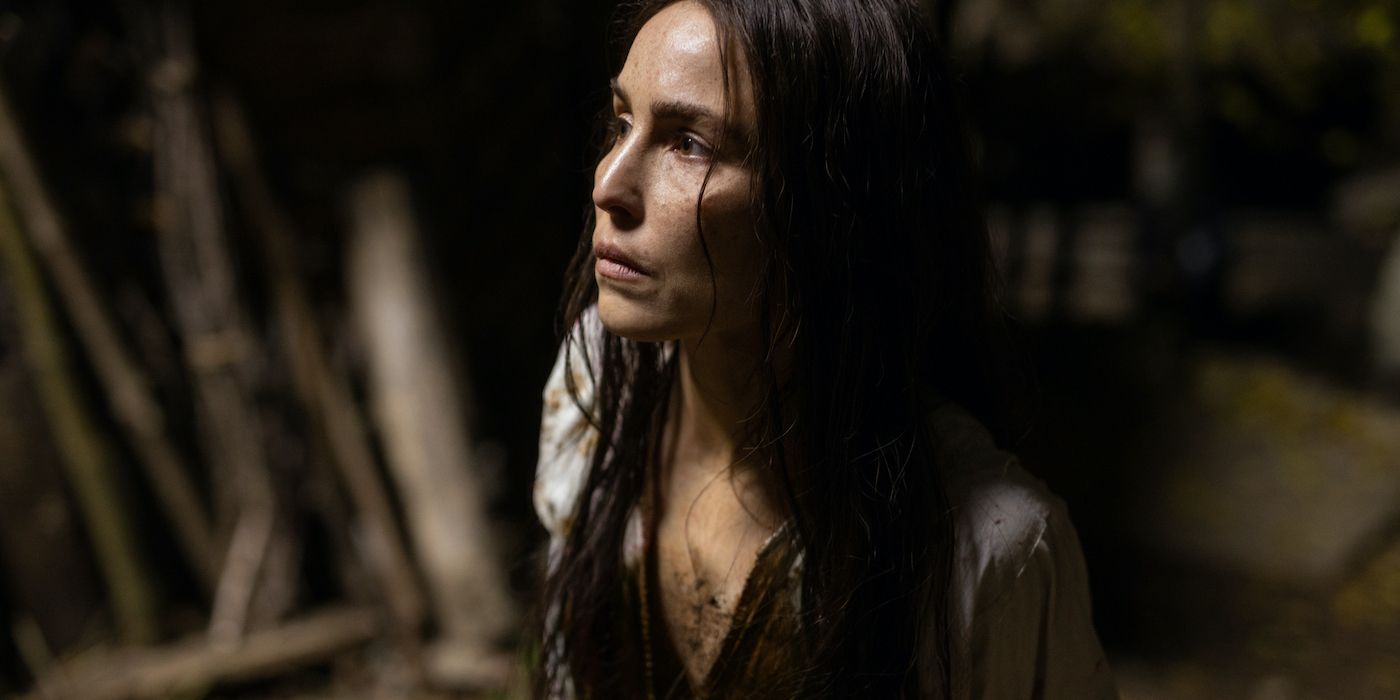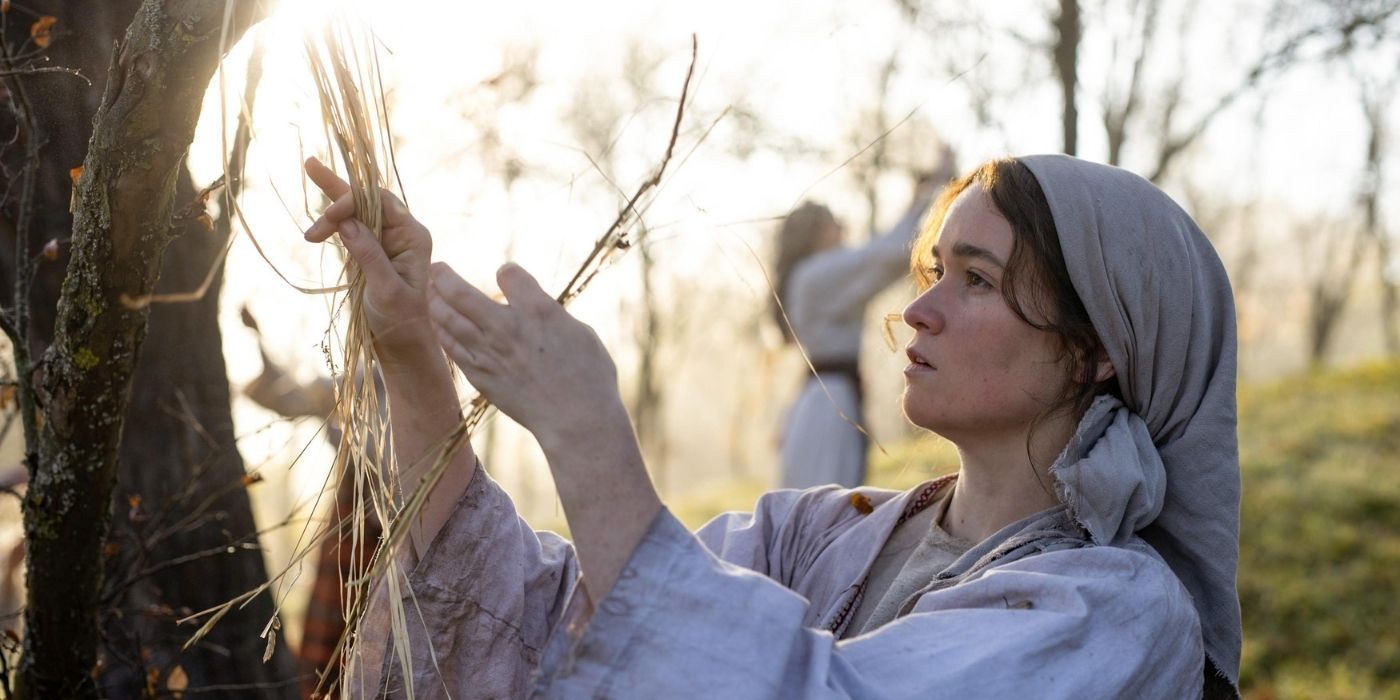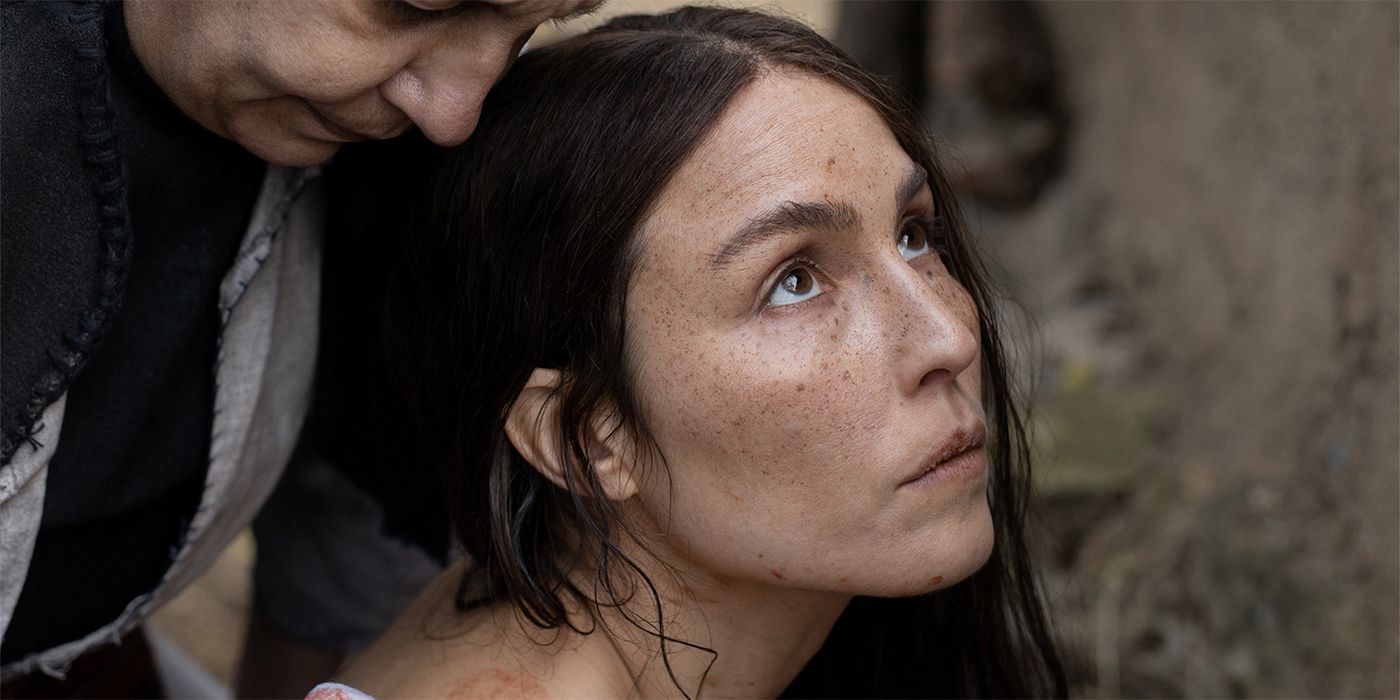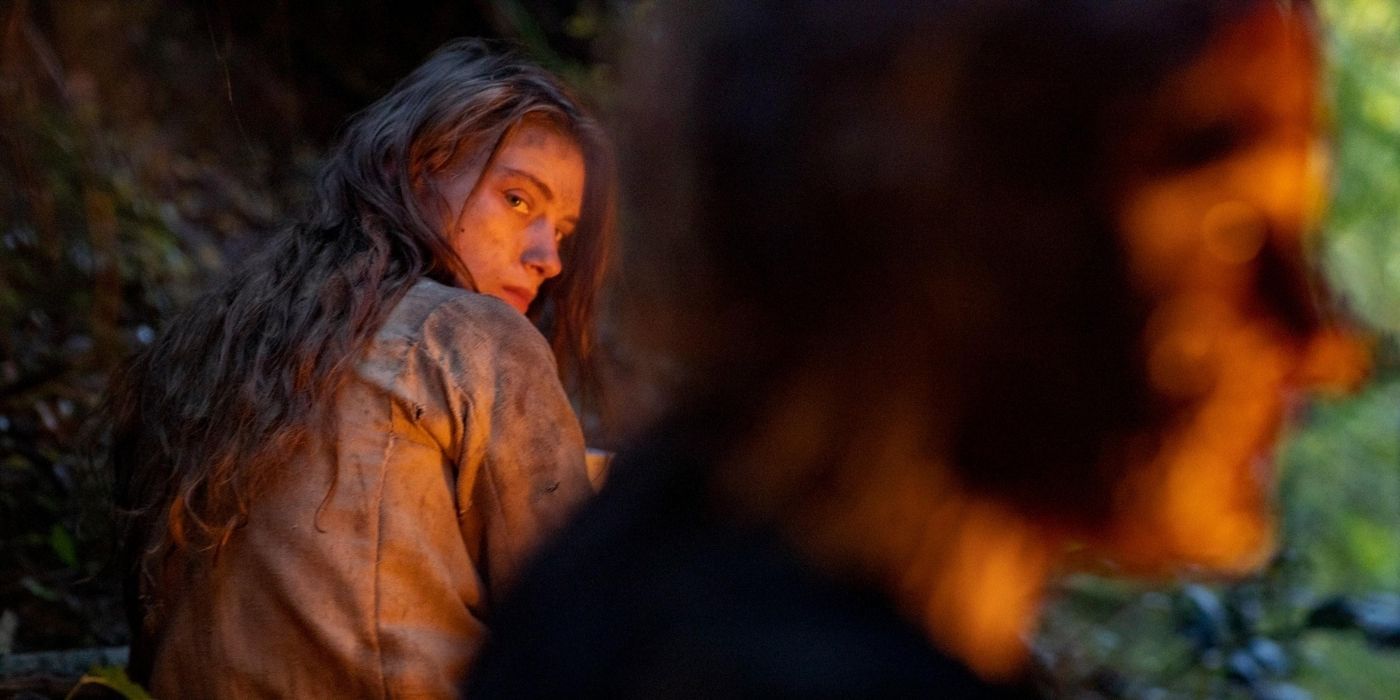The mesmerizing Sundance horror hit You Won't Be Alone is a story about witches, though not in a way you’ve ever seen before. Set in 19th-century Macedonia, it follows the life of a young girl who is initially abducted from a village and left to grow up in almost complete isolation in a cave. This may sound like a story you have heard before, as films about witches are practically a subgenre of their own.
However, with writer-director Goran Stolevski’s film, it is important to establish just how inventive this movie is in terms of how it upends the conventions of the genre to become something all its own. This is through not just the stunning performances of those like Noomi Rapace, who plays the first of many forms our protagonist takes, but in the way it frames its story around humanizing characters who are often just made into superficial monsters. It is aware of its history, both cinematic and otherwise, as it charts a path that is all its own.
'You Won't Be Alone' Makes Its Characters More Human Than Most Witches Onscreen
The history of witches in movies dates all the way back to 1922’s groundbreaking Häxan, which is believed to be one of the first, if not the first, films about witches ever. Initially dismissed upon its release, it has gained a newfound appreciation for how it delved into the mythology of witches with multiple restorations. Since then, there have been countless numbers of stories about witches that have begun to fall into certain patterns. These are usually built around them being horrific beings, known for kidnapping children and taking the forms of others in order to do so. It is in this long trajectory that You Won’t Be Alone places itself, reinterpreting and re-imagining many of these “monstrous” aspects into something more human. It all becomes part of a prevailing sense of cinematic poetry about what it means to be alive with all the pain and pleasures that come with existence. It does this with a subtle touch, drawing us into the typically under-seen internal and external emotional states of witches as fully-developed characters.
When audiences were first experiencing this manner of subversive storytelling during the premiere at the festival, this significant shift in tone caught some off guard. This is because Nevena, first played in her original form by a dedicated Sara Klimoska, has many of the physical characteristics of what we imagine as a witch. Such detail seems to indicate the film is going to be about her just committing more and more acts of violence. This, in remarkable fashion, turns out to just be the beginning.
Having been completely isolated from any social connections, Nevena is constantly in a state of becoming. She soon finds ties to loving people that care for her and want to see her be happy. It is this bittersweet exploration of the value of community that carries her and us through the film. It is both primal and profound as the journey is told entirely through her eyes as she goes through a process of awakening over multiple iterations of herself. As her character peels off the skin of who she was to take on new forms, it makes use of gore not to terrify but to connect us to her experience of rebirth. Such scenes of body horror invite the audience to respond not with fear but with empathy as we grow with her in the process of her changes.
What becomes even more interesting is how the film grapples with the tension between Nevena and her witch-mother that was the primary one to “raise” her. Maria, brought to life with a multifaceted performance by Anamaria Marinca, is often resentful of the daughter she has taken on. However, this is not reduced to be a one-note portrayal or caricature that could easily be demonized as many similar depictions of witches have been. You begin to realize that both Maria and Navena have more in common than initial impressions establish. They both are outsiders, uncertain if they will ever be able to be part of a world that we all know would view them with disgust and fear. They both must struggle to find a way to survive and often pay dearly just to make it to the next day. This is hardly what we imagine when we think of stories about witches, as they are usually reduced to being the villains of the film, not the ones in whose shoes we are placed. Even when Maria becomes the primary antagonist to Navena, it is done with an eye for complexity and nuance that shows the humanity of the characters at the center even as they are in opposition to each other.
'You Won't Be Alone' Seeks Deeper Understanding of Its Characters
Don’t let it be mistaken, You Won’t Be Alone is still a horror film through and through, with plenty of violence as well as gore. The ending itself is a primary example of this as it is unsettling and upsetting. However, the way this fits into the story is nothing short of spectacular even as it is deeply painful. It all becomes about living life in an ugly world and finding a tranquil sense of beauty where you can. It is a film where the witches are just as human as we are, if not more so, and strive for a meaningful existence where they can live freely with people that care for them as who they are.
This represents a narrative challenge to the conventions of stories about witches that most clearly draws visual inspiration from the work of director Terrence Malick. The focus on nature and the pastoral landscapes with sweeping camera movements feel like some of the most beautiful segments of Malick’s masterful A Hidden Life in the scenes before the horrors of the world come rushing in.
Such feeling is replicated though still taken in its own direction by Stolevski, upending the common conception of its central mythic figures with a grace that works to build a deeper essence of understanding. It is all about uncovering their motivations and hopes for themselves that invites an overwhelming sense of empathy for beings that have often been relegated to be a target of disdain. In doing so, the film becomes a profound and poetic experience that is unlike any other film working in this genre of recent memory. The manner in which it settles into being about a shared desire to carve out a life of joy despite tragedy is both transcendent and transformative.
It is evocative and haunting, finding an enduring sense of connection from its folk horror roots. The poignant and patient manner in which it achieves this all comes back to being about re-imagining what we think of when we think of witches. It leaves a lasting impression, ensuring you'll never think of its subjects in the same way again.




